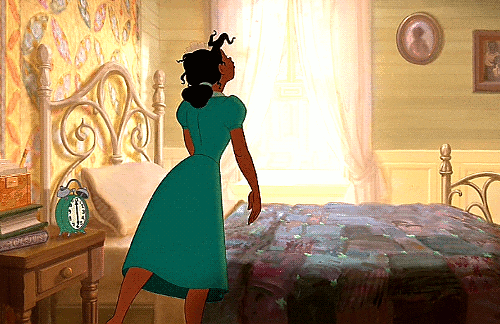Do you think you personally put out better games, better art, under pressure? Some people put out masterpieces that only took the shape they did because they were under harsh constraints, cheifly low dev time. How about you? And is there a dichotomy between comfort and pressure to product quality that you find interesting?

That's an excellent question. You may remember the term [Decision Paralysis] used before on this blog. It's when a decisionmaker is presented with so many choices that they refuse to make (or put off making) a choice out of fear of making a mistake. Decision Paralysis affects everyone, including game developers like me. We can get so wrapped up in finding the perfect solution that we never commit to any one, for fear of that's solution's drawbacks... even though any solution that we commit to will have drawbacks regardless. This lack of commitment has side effects down the line - because we can't commit to something, we're afraid of our work being wasted or thrown out so we won't commit our best effort to it.

As such, pressure like a deadline naturally pushes us towards what I've taken to calling decision commitment - when we are willing to lock down a choice and accept all the benefits and tradeoffs that choice entails, rather than continuing to circle the options and never commit. It is closely related to what Mark Darrah likes to call completion urgency - the pressure to finish what we're working on. Decision commitment is necessary to make actual progress. Without any pressure to commit to a decision, dev teams can (and do) burn indefinite amounts of dev time and resources going in circles and end up with very little to show for it. When we've got a hard deadline, we know we have to buckle down and commit. That pushes us to give our best because we know it won't be wasted.

Lack of (or late) decision commitment really hurts craftsmanship and quality because we aren't actually committing to what we're building. If we are always keeping the back door open to drop whatever it is we're working on and changing our minds on the direction we're going, it always feels like a potential waste to do our best work. The quickest way to burnout is to feel like your work doesn't matter and your effort was wasted. Why polish, optimize, and improve if we're going to go a different way next week and throw this work out? No one likes to feel that way, so we naturally hedge our efforts with the minimum viable effort if we aren't sure whether it will be used.

This is all a long-winded way of saying "Yes, I absolutely do better quality work when I'm under pressure. Since I am confident we're doing this thing, I can give it my all." Without the pressure to deliver, the back door is always open and it's extremely hard to commit to the decision and give my best. If I know that we're absolutely committing to what I'm working on, I will build the best feature and content that I can. I believe that many other devs share this feeling for similar reasons.
[Join us on Discord] and/or [Support us on Patreon]
Got a burning question you want answered?
- Short questions: Ask a Game Dev on Twitter
- Long questions: Ask a Game Dev on Tumblr
- Frequent Questions: The FAQ


